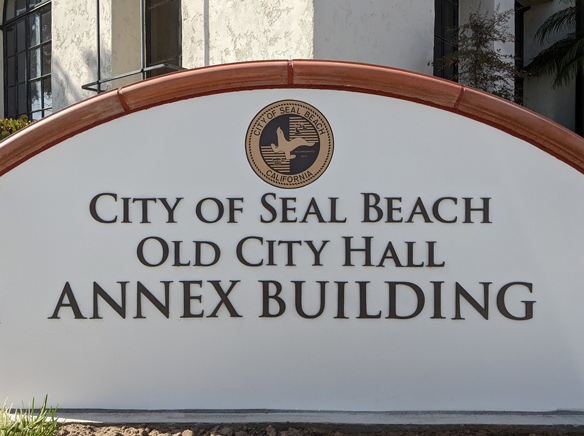Seal Beach has asked the California Coastal Commission for a Coastal Development Permit for a short term rental program. Short term rentals in Seal Beach are properties rented for less than 30 days.
The commission was scheduled to consider Seal Beach’s request today, Thursday, July 11.
Coastal Commission staff recommended approving the request, according to the CCC staff report. CCC staff recommended special conditions, including a requirement that the city of Seal Beach study the impact of short term rentals over six years.
“If adverse impacts are found, the need for a CDP amendment would be triggered,” according to the CCC staff report.
In September 2023, the Seal Beach City Council suspended the ban on short term rentals in response to court rulings that basically prohibited cities from banning short term rentals. (City suspends enforcement of ban on vacation rentals,” at sunnews.org.)
In April 2023, the council approved the fee schedule for short term rental permits. (See “Council approves vacation rental permit fees,” at sunnews.org.)
In 2023, a lottery awarded 31 short term rental permits to Seal Beach properties. Seal Beach imposed a limit on short term rentals to 1% of the properties, according to an April 2023 staff report by Community Development Director Alexa Smittle. (See “31 Seal Beach properties win city’s vacation rental permit lottery,” at sunnews.org.)
However, according to the Coastal Commission staff report, the proposed program would allow “approximately” 47 short term rental permits.
The Coastal Commission staff report provided a little more background information.
“Typically, STR regulations are contemplated by the Commission within the context of a jurisdiction’s Local Coastal Program (LCP),” according to the CCC report.
“However, the City of Seal Beach does not have a certified LCP and is, thus, seeking a CDP to establish the Short-Term Rental Program. The Commission has previously approved two STR programs via a CDP: one similarly for a City without a certified LCP (Torrance) and one for a City with an LCP (Dana Point),” according to the CCC report.
“In early 2012, the City Council reexamined STRs as neighboring properties were experiencing adverse impacts associated with STRs. Such adverse impacts included but were not limited to noise, accumulation of trash, overcrowding, and demands on police services. As a result, the City Council adopted Ordinance 1618-U (effective for 45 days) and Ordinance 1619-U, which modified Ordinance 1618-U and extended the term of the interim regulations for 10 months and 15 days,” according to the CCC report.
“Understanding that a ban of STRs requires a CDP as it impacts coastal access, the City approved Ordinance 1701, on January 9, 2023. The City then submitted a CDP application for this program on June 9, 2023, to be reviewed by the Commission,” according to the CCC report.
“There are currently 14 homes in the Coastal Zone that have existing Conditional Use Permits (CUPs) to operate as STRs pursuant to these older ordinances. The proposed STR program does not impact those units, as they may continue to operate under the conditions of their respective CUPs,” according to the CCC report.
“The City of Seal Beach’s proposed STR Program seeks to strike a balance between providing visitor-serving overnight accommodations and maintaining long-term housing, which is in short supply in Seal Beach and statewide. In this case, STR permits cannot be issued for any deed-restricted affordable housing units,” according to the CCC report.
“Additionally, the City does not expect that the number of STR permits allowed would in any way affect the City’s ability to meet their regional housing needs,” according to the CCC report.
The Coastal Commission report says that the two hotels in Seal Beach have a combined total of 180 rooms.
“Since the number of hotels (visitor-serving accommodations) are limited in the City, STRs would provide an alternative for accommodating visitors to the coast,” according to the CCC report.




